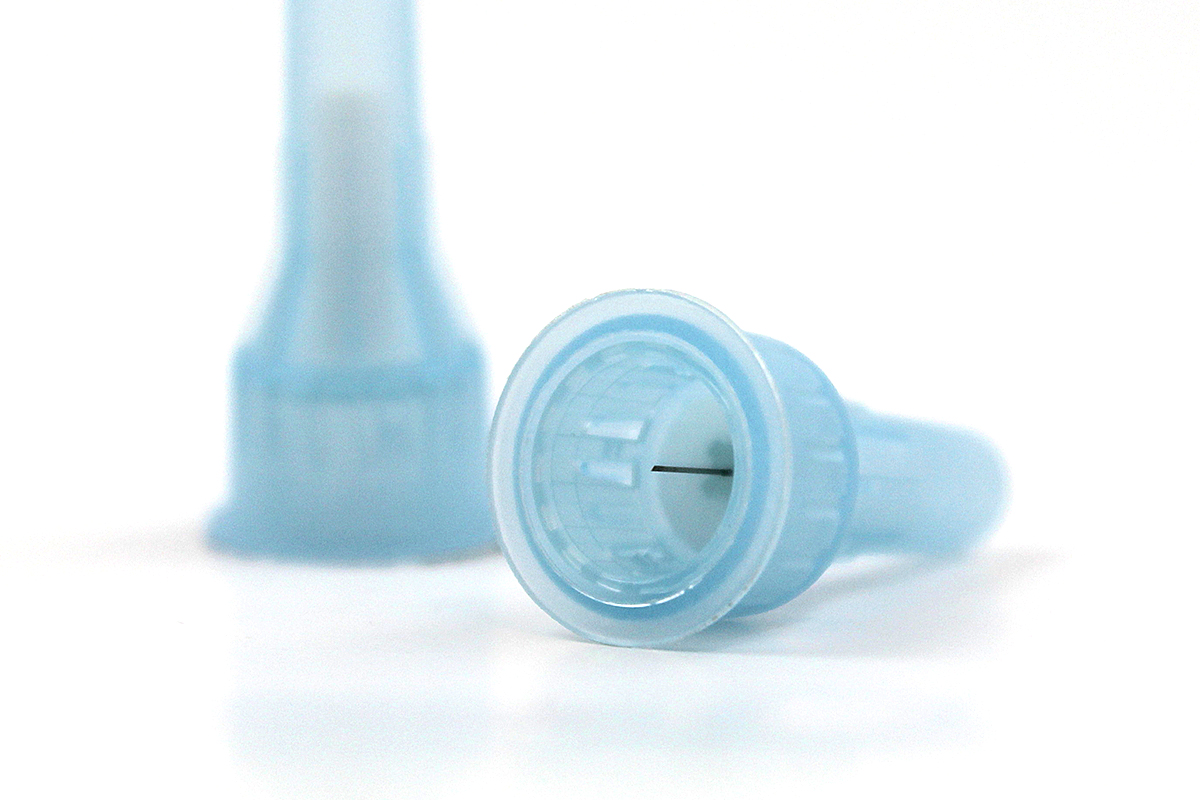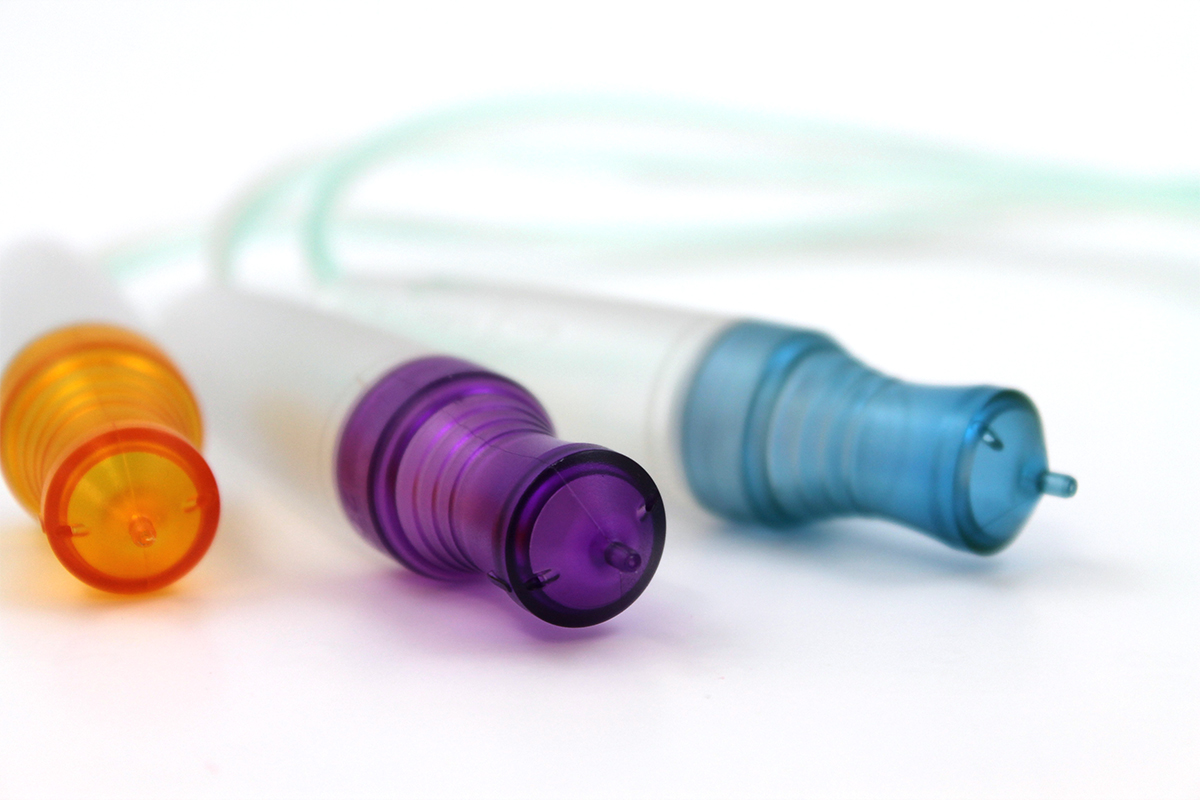Masterbatches and colour masterbatches manufactured in compliance with FDA regulations
An FDA-compliant masterbatch is a plastic concentrate whose composition and manufacturing process meet the requirements of the US Food and Drug Administration (FDA). It must ensure safety in applications where contact with food, medical devices or pharmaceuticals occurs (food contact). In this context, compliance means that the pigments, additives and carrier polymers used in the masterbatch are safe and do not pose any health risks to end products, for example in the areas of food packaging, medical containers, medical devices or the pharmaceutical industry. The FDA is a globally important US authority that defines strict requirements that must be met for use. Pigments, additives and polymers must comply with FDA guidelines. With FDA-compliant masterbatches from Granula®, customers have the best safety and complete compliance documentation.
ISO 13485
To ensure FDA compliance in the areas of food packaging, direct contact with dry, aqueous or fatty foods (food contact), the medical industry and the pharmaceutical industry, GRANULA uses the internationally recognised quality system in accordance with ISO 13485 (MedTech), thereby providing objective proof of compliance.
FDA requirements for masterbatch

When a masterbatch is used in plastics that come into direct contact with food or pharmaceuticals, all of its ingredients must comply with the corresponding FDA guidelines. This applies in particular to 21 CFR Parts 170–199 and, from this, the relevant FDA 21 CFR § 178.3297 for colourants. Masterbatches in pharmaceutical packaging must meet further comprehensive requirements for toxicological safety and provide evidence that no harmful leaching occurs. In addition, Good Manufacturing Practice (GMP) must be observed.
Typical uses of FDA-compliant masterbatch
- Packaging, bottles, films for food and beverages
- Plastic parts and packaging for medicines, tubes, syringes, infusion sets, catheters
- Materials and components for medical diagnostics and implants
- Secondary pharmaceutical packaging
- Cosmetics packaging
- Drinking water applications
Advantages of Granula® as a manufacturer of FDA-compliant masterbatch
Granula has been manufacturing masterbatch since 1964 and is therefore a European pioneer in plastics production. Its many years of experience and associated expertise in FDA and EU regulations support the development of sophisticated solutions. The tailor-made customer formulations are adhered to 100% for every batch. Each masterbatch is individually tested and documented in terms of FDA compliance and composition. Every batch is documented with a test report and a certificate of conformity. A controlled production process and complete traceability are guaranteed. The ISO 9001 and ISO 13485 certificates obtained document manufacturing in accordance with international standards.
The most important EU regulations for masterbatches in contact with food are Framework Regulation (EC) No. 1935/2004, Plastics Regulation (EU) No. 10/2011 and GMP Regulation (EC) No. 2023/2006.
Framework Regulation (EC) No. 1935/2004
- This regulation applies to all materials that come into contact with food, including plastics and masterbatches.
- Masterbatches must not release any constituents in quantities that could endanger human health or impermissibly alter the composition, odour or taste of the food (Article 3).
Plastics Regulation (EU) No. 10/2011
- Specifically regulates plastics and their additives (e.g. colour and additive masterbatches) for food contact.
- Lists all authorised starting materials (monomers, additives, colourants, etc.) and sets migration limits for individual substances (Specific Migration Limits, SML).
- Non-intentionally added substances (NIAS) must also be evaluated and tested if necessary.
- The current revision, Regulation (EU) 2025/351, which will apply from 2025, imposes stricter requirements with regard to transparency, purity (exclusion of genotoxicity, Article 3a), traceability and control of recycled plastics.
GMP Regulation (EC) No. 2023/2006
- Manufacturers must guarantee safe production processes (Good Manufacturing Practice, GMP) to prevent unintended contamination or migration.
- Documentation, complete traceability and quality control are mandatory.
REACH and additional regulations
- All substances contained in masterbatches must be registered in accordance with REACH or exempt from registration.
- Special requirements also apply to product labelling, traceability and testing for overall and specific migration (overall migration and individual substance tests).
- Depending on the country, there are additional national requirements, for example for paints, printing inks or certain types of packaging, which must also be observed.
The main differences between EU and US regulations for masterbatches in food contact lie in the legal structure, approval practices and safety and documentation requirements.
Authorisation and approval process
- In the EU, Framework Regulation (EC) No. 1935/2004 and specific regulations such as EU 10/2011 for plastics apply. All substances used must be expressly authorised and listed in a positive list.
- In the US system, the FDA mainly regulates according to 21 CFR Parts 170–199. Here, positive lists of permitted substances apply, as well as alternative approval routes such as Food Contact Notifications (FCN), Threshold of Regulation (TOR), or GRAS (Generally Recognised As Safe).
- A key difference is that US FCN approval is always manufacturer- and application-specific, whereas in the EU, a one-time approval of substances applies to all manufacturers and applications in food contact.
Migration and testing requirements
- The EU requires specific and general migration tests for end products (e.g. specific migration limits for additives and overall migration).
- In the USA, migration tests are not always mandatory; instead, attention is paid to compliance with purity requirements and the respective application.
- The EU requires that non-intentionally added substances (NIAS) also be assessed and tested. In the USA, purity requirements are sufficient as long as there are no health risks.
Enforcement and control
- The EU relies on centralised authorisation and control by the EFSA, although Member States may enact their own additional regulations.
- In the USA, the FDA is responsible, but there are also state regulations, for example in California. The main focus of control is on testing packaging.
Documentation requirements and transparency
- The EU requires all suppliers in the food contact sector to provide a Declaration of Compliance (DoC). The distributor must prove the conformity of the end products through laboratory tests or calculations.
- In the USA, a self-declaration or an entry in the FCN register is sufficient. A formal DoC is not required, but GMP documentation is recommended.
© Granula Ltd., 29.10.2025


